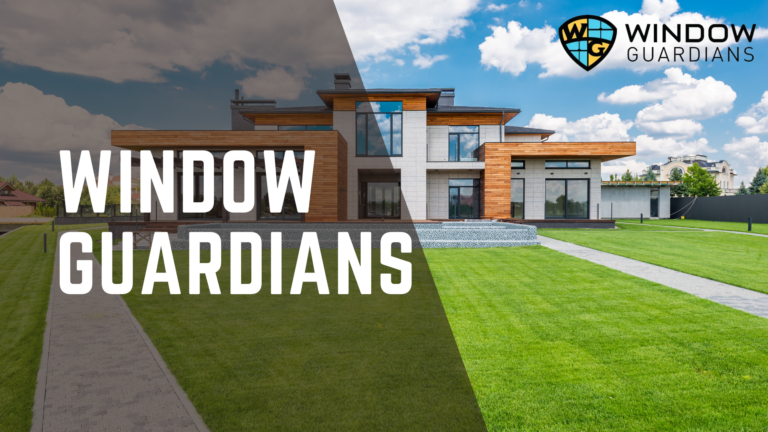Windows play a crucial role in the comfort, energy efficiency, and aesthetic appeal of a home. However, the environmental impact of the materials used to manufacture windows is often overlooked. By understanding the ecological footprint of different window materials, homeowners can make informed decisions that benefit both their homes and the planet. Let’s explore the sustainability of various window materials and learn how to make greener choices.
Why Sustainable Window Materials Matters
Every step of a window’s lifecycle, from production to disposal, impacts the environment. The choice of material determines:
- Energy Efficiency: Some materials insulate better, reducing energy consumption.
- Durability: Longer-lasting materials require fewer replacements, reducing waste.
- Recyclability: Certain materials can be repurposed, minimizing landfill contributions.
By prioritizing sustainable options, homeowners can reduce their carbon footprints and support eco-friendly practices.
Common Window Materials and Their Environmental Impact
1. Vinyl (PVC)
Vinyl is a popular choice due to its affordability and energy efficiency. However, it has a significant environmental downside:
- Production Impact: Manufacturing vinyl releases harmful chemicals and greenhouse gases.
- Recyclability: While recyclable, the process is complex and not widely available.
- Durability: Vinyl windows have a lifespan of 20-30 years, requiring eventual replacement.
2. Aluminum
Aluminum windows are lightweight, durable, and low-maintenance. Despite these benefits, they come with environmental trade-offs:
- Energy-Intensive Production: Extracting and refining aluminum consumes large amounts of energy.
- Recyclability: Aluminum is highly recyclable, with minimal quality loss.
- Thermal Conductivity: Without proper insulation, aluminum windows can lead to energy loss.
3. Wood
Wood is a natural and renewable material that adds timeless beauty to homes. Its environmental impact depends on sourcing and maintenance:
- Sustainable Sourcing: Certified wood (e.g., FSC-certified) ensures responsible harvesting.
- Recyclability: Wood is biodegradable and can be repurposed.
- Maintenance Requirements: Regular upkeep is necessary to prevent decay and extend lifespan.
4. Fiberglass
Fiberglass is gaining popularity for its durability and energy efficiency. Its environmental benefits include:
- Production: Fiberglass is made from sand, a readily available resource, with a relatively low production impact.
- Recyclability: Though not widely recycled, fiberglass is long-lasting, reducing replacement frequency.
- Energy Efficiency: Excellent insulation properties lower heating and cooling needs.
5. Composite Materials
Composite windows combine materials like wood and vinyl to enhance performance. They offer:
- Durability: A blend of materials improves longevity.
- Energy Efficiency: Insulation capabilities are often superior.
- Recyclability: Mixed materials can complicate recycling efforts.
Choosing Sustainable Window Materials Options
1. Look for Certifications
Certifications like Energy Star and Forest Stewardship Council (FSC) indicate eco-friendly and energy-efficient products. These labels help homeowners identify sustainable choices.
2. Consider Life Cycle Costs
While some materials may have higher upfront costs, their durability and energy savings often offset initial expenses. For example, fiberglass may cost more than vinyl but lasts longer and insulates better.
3. Opt for Recyclable Materials
Choosing materials that are easy to recycle, like aluminum or wood, ensures a lower environmental impact at the end of the product’s lifecycle.
4. Support Local Manufacturers
Locally sourced windows reduce the carbon footprint associated with transportation. Additionally, supporting local businesses contributes to the community economy.
Benefits of Sustainable Windows
1. Reduced Energy Consumption
Energy-efficient materials minimize heat transfer, lowering the need for heating and cooling. This not only saves money but also reduces greenhouse gas emissions.
2. Lower Environmental Impact
Eco-friendly materials and production practices conserve resources and minimize pollution.
3. Improved Indoor Comfort
Better insulation properties enhance indoor temperature stability, reducing drafts and hot spots.
4. Increased Home Value
Sustainable upgrades appeal to environmentally conscious buyers, potentially boosting resale value.
Innovations in Sustainable Windows
The window industry continues to innovate, introducing new eco-friendly solutions such as:
- Solar Windows: Integrating photovoltaic cells to generate renewable energy.
- Self-Healing Materials: Extending the lifespan of window components.
- Advanced Coatings: Enhancing energy efficiency by reflecting heat while allowing natural light.
Conclusion
Selecting sustainable window materials is a simple yet impactful way to contribute to a healthier planet. Whether you’re renovating or building from scratch, consider the environmental implications of your choices. At Window Guardians, we’re committed to providing eco-conscious solutions that align with your values and enhance your home’s performance. Contact us today to learn more about our sustainable window options!
See what our clients have to say: Window Guardians







